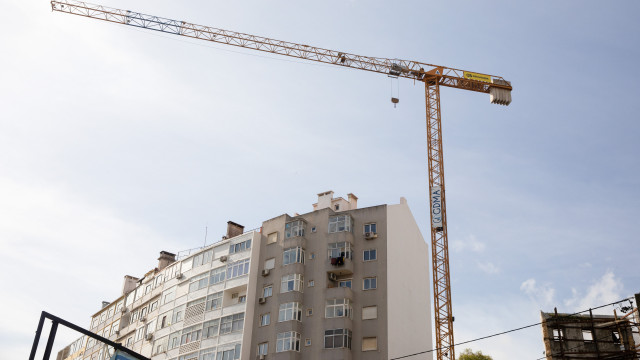In December, the European Commission will present a package of measures for housing in response to the sector’s crisis, notably in Portugal, which has seen some of the highest rises in house prices.
What is known so far?
The European Commission announced this week its intent to “closely monitor” and address the housing crisis within the European Union (EU) with a community plan to be unveiled in December.
“Regarding housing, it is a problem in many EU Member States, and it’s something we are closely watching as we are now working on how to address these housing issues on the EU level,” stated European Economy Commissioner Valdis Dombrovskis.
A European package on housing is scheduled for release on December 16, including an EU plan for affordable housing, a proposal to revise state aid rules related to services of general economic interest, a new European Bauhaus program, and a new strategy for housing construction.

The Advisory Council for Housing of the European Commission today recommended a “paradigm shift” in the housing sector within the European Union (EU), proposing an end to the “financialization” of housing and the taxation of short-term rentals.
Lusa | 15:53 – 20/11/2025
House prices continue to rise
Autumn forecasts indicate that “house prices in the EU continued to rise, consolidating the recovery that started in 2024.” In the second quarter of 2025, house prices in the EU were 5.4% higher than a year before (5.1% in the euro area), following quarterly increases of 1.4% in the first quarter of 2025 and 1.6% in the second quarter of 2025.
This price growth was more pronounced in southern and eastern Europe.
Portugal stands out (and not for the best reasons)
Portugal is one of the countries that has been experiencing annual growth rates in double digits, driven by strong demand and limited supply.

“Twenty years ago, we built 100,000 houses per year. Today, an average of 24,000 to 25,000 new homes are built annually, with this year reaching a peak of 28,000. Prices can only decrease with more supply, but there is no capacity to do more,” said Manuel Maria Gonçalves, CEO of the Portuguese Association of Real Estate Developers and Investors (APPII).
Lusa | 12:42 – 21/10/2025
“Pressures on affordability remain high, as house prices have increased faster than household incomes in many countries, especially in urban centers,” warns the institution.
According to the European Commission, “supply constraints continue to be a determining factor in housing market dynamics,” while “construction permits and completed homes remain at historically low levels.”
Structural barriers, high construction costs, and regulatory obstacles continue to limit the new supply, driving prices up, notes the EU executive, admitting that these constraints will persist through 2026-2027.
A European Plan for Affordable Housing is coming
Due to the severe housing crisis in the EU, the European Commission will present, by the end of 2025, a European Plan for Affordable Housing aimed at complementing housing policies at the national, regional, and local levels while maintaining the principle of subsidiarity, as this is a member state competence.
The plan will include funding, state aid, and limits on local accommodation.
The European Union is facing a housing crisis, in countries like Portugal, where house prices and rents have increased significantly, making it difficult to access affordable housing, especially for young people and low-income families.
It is estimated that in the EU, more than one in four people between the ages of 15 and 29 live in overcrowded conditions, with many young Europeans leaving their parents’ homes near or after the age of 30 because they cannot afford their own home.
In 2023, about one in 10 Europeans spent 40% or more of their income on housing and related costs.




